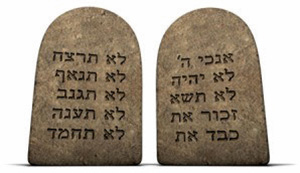
Although Shavuos is a biblical holiday, it is never described as “Zman Matan Toraseinu” in the Torah. And there have been some very good suggestions made as to why the association between the giving of the Torah and the holiday of Shavuos is only made in (later) rabbinic literature, despite the date of public revelation, when we heard God state the 10 Commandments, being the same date that we observe Shavuos.
The Aruch HaShulchan (O”C 494:2), who points out that we follow the majority opinion that the public revelation occurred on the sixth of Sivan (as opposed to the seventh), says that tying a holiday to an historical event, such as Pesach and the exodus from Egypt and Sukkos with the Clouds of Glory, is only done regarding a one-time historical event. The giving of the Torah, on the other hand, is a gift that keeps on giving, as it is eternal, so is not “commemorated” as an anniversary the way the other events are.
A practical reason for the Torah not connecting Shavuos with the giving of the Torah is based on the calendar itself. Pesach always begins on the 15th of Nisan, and Sukkos always begins on the 15th of Tishrei. Shavuos, on the other hand, is on the 50th day after the second day of Pesach, when the Omer is offered. Since our calendar is set, with Nisan always having 30 days and Iyar always having 29 days, the 50th day always coincides with the sixth of Sivan. Before the calendar was set, though, when Rosh Chodesh was declared based on eyewitness testimony of the new moon, either month could have had 29 days or 30 days. If both had 30 days, the 50th day would be on the fifth of Sivan, not the sixth. Similarly, if both months had 29 days, Shavuos would be on the seventh, not the sixth. Therefore, it was only after the calendar was set, and the 50th day always on the sixth of Sivan, that a connection between Shavuos and the giving of the Torah could be made.
There is another very good reason why the Torah doesn’t connect Shavuos with the giving of the Torah; although the 6th of Sivan may have been the date of the public revelation, that public revelation did not include the entire Torah, just the 10 Commandments. There were parts of the Torah given earlier, such as the holiday of Pesach, which was taught while we were still in Egypt (Shemos 12:14-20), the civil laws, which were given at Marah (see Rashi on Shemos 15:25), and Shabbos shortly thereafter (Shemos 16:23-30). As a matter of fact, the entire Sefer Bereishis and the first part of Sefer Shemos was put into writing and read to the nation before Moshe ascended Mt. Sinai for the first set of 40 days (see Rashi on Shemos 24:4 and 24:7; according to Rashi this occurred not only before the first set of 40 days, but before the public revelation, see 24:1).
Even if every detail of every mitzvah was taught to Moshe on Mt. Sinai (see
Sotah 37b) immediately after the public revelation, he didn’t teach it all to us right away, but rather piece by piece over the remainder of the 40 years in the desert, when God repeated it to him in the Mishkan (throughout Sefer Vayikra and Sefer Bamidbar), and shortly before he died (Sefer Devarim). The text of the entire Torah was not presented to us until right before his death (Devarim 31:24-26). The bottom line is that we only received a small portion of the Torah on the sixth of Sivan in 2448, with most of it still to be given, precluding referring to Shavuos as when we received the Torah, or even when it was given to Moshe to (eventually) give to us.
Later, many years after we received all the pieces of the Torah, we could look back and say that the public revelation was the focal point of God giving us the Torah, as the parts given before that were in preparation for becoming God’s cherished nation (see Shemos 19:3-6), while the bulk of it, given to us afterward, resulted from the relationship forged at that moment. Therefore, even if God never explicitly connected Shavuos with His giving us the Torah, in retrospect we can (and do), using the opportunity to renew our commitment to God and His Torah each and every year.
By Rabbi Dov Kramer
Rabbi Dov Kramer, known to New York-area sports fans for his role as executive producer at WFAN radio, runs the 8 a.m. Nusach Ashkenaz minyan on Shabbos mornings at The Tif in Passaic. He will, im yirtzeh Hashem, be giving a shiur there on Shavuos night going through the sources of when we received each section of the Torah.













